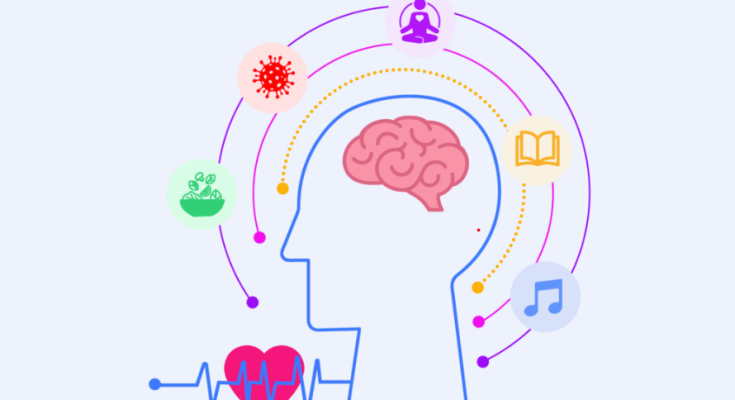Mental Wellness in the Digital Age: Navigating Challenges and Cultivating Resilience
In today’s digital age, the pervasive influence of technology has transformed the way we live, work, and interact with the world around us. While digital technologies offer numerous benefits and conveniences, they also present unique challenges to our mental health and well-being. In this article, we’ll explore the impact of the digital age on mental wellness, examine common challenges faced by individuals in the digital era, and discuss strategies for promoting mental resilience and well-being in an increasingly connected world.
The Digital Age and Mental Wellness:
The advent of digital technologies has revolutionized nearly every aspect of our lives, providing us with instant access to information, communication, and entertainment. However, the constant connectivity and information overload associated with the digital age can take a toll on our mental health and well-being. From the pressure to maintain a curated online persona to the addictive nature of social media and the relentless stream of notifications demanding our attention, navigating the digital landscape can be overwhelming and anxiety-inducing for many individuals.
Common Challenges in the Digital Era:
- Information Overload: The abundance of information available online can lead to information overload, making it difficult to discern reliable sources from misinformation and contributing to feelings of overwhelm and cognitive fatigue.
- Social Comparison: Social media platforms often facilitate social comparison, as individuals compare their lives, achievements, and appearances to those of others, leading to feelings of inadequacy, jealousy, and low self-esteem.
- Digital Distractions: The constant bombardment of notifications, emails, and messages can be distracting and disruptive, affecting our ability to focus, concentrate, and engage in deep, meaningful work.
- Online Harassment and Bullying: The anonymity and perceived impunity of online spaces can embolden individuals to engage in cyberbullying, harassment, and trolling, leading to negative psychological consequences for victims.
- Sleep Disruption: The use of electronic devices before bedtime can disrupt sleep patterns and contribute to poor sleep quality, insomnia, and sleep-related disorders.
- Digital Dependence: Excessive use of digital devices and online platforms can lead to digital dependence, where individuals rely on technology to regulate their emotions, cope with stress, and escape from real-life problems.
Strategies for Promoting Mental Wellness:
While the digital age presents numerous challenges to mental wellness, there are also strategies and interventions that individuals can employ to cultivate resilience and well-being in the face of digital stressors:
- Set Boundaries: Establish clear boundaries around your use of digital devices and online platforms, such as limiting screen time, designating tech-free zones in your home, and scheduling regular breaks from technology.
- Practice Mindfulness: Incorporate mindfulness practices into your daily routine, such as meditation, deep breathing exercises, and mindful awareness of your thoughts, feelings, and sensations. Mindfulness can help you stay present, reduce stress, and cultivate inner peace amid the distractions of the digital world.
- Curate Your Digital Environment: Be intentional about the content you consume and the online communities you engage with. Curate your digital environment to include sources of inspiration, positivity, and support, and unfollow or mute accounts that contribute to negative feelings or comparisons.
- Prioritize Real-world Connections: Nurture meaningful relationships and connections in the offline world, such as spending quality time with family and friends, participating in community activities, and engaging in hobbies and interests that bring you joy and fulfillment.
- Practice Digital Detox: Take regular breaks from technology by unplugging from digital devices and engaging in activities that nourish your body, mind, and spirit. Spend time in nature, engage in physical exercise, or pursue creative pursuits that promote relaxation and rejuvenation.
- Seek Professional Support: If you’re struggling with mental health issues or digital stressors that impact your well-being, don’t hesitate to seek professional support from a therapist, counselor, or mental health professional. They can provide guidance, support, and coping strategies to help you navigate the challenges of the digital age.
Conclusion:
In the digital age, prioritizing mental wellness is more important than ever. By recognizing the challenges posed by digital technologies and implementing strategies to promote resilience and well-being, we can navigate the complexities of the digital landscape with greater ease and grace. Whether it’s setting boundaries around our technology use, practicing mindfulness and self-care, or seeking support when needed, cultivating mental wellness in the digital age requires intention, self-awareness, and a commitment to nurturing our overall well-being in a rapidly changing world.
For more information visit: elmzaango.com
For more information visit: newsburing.com
